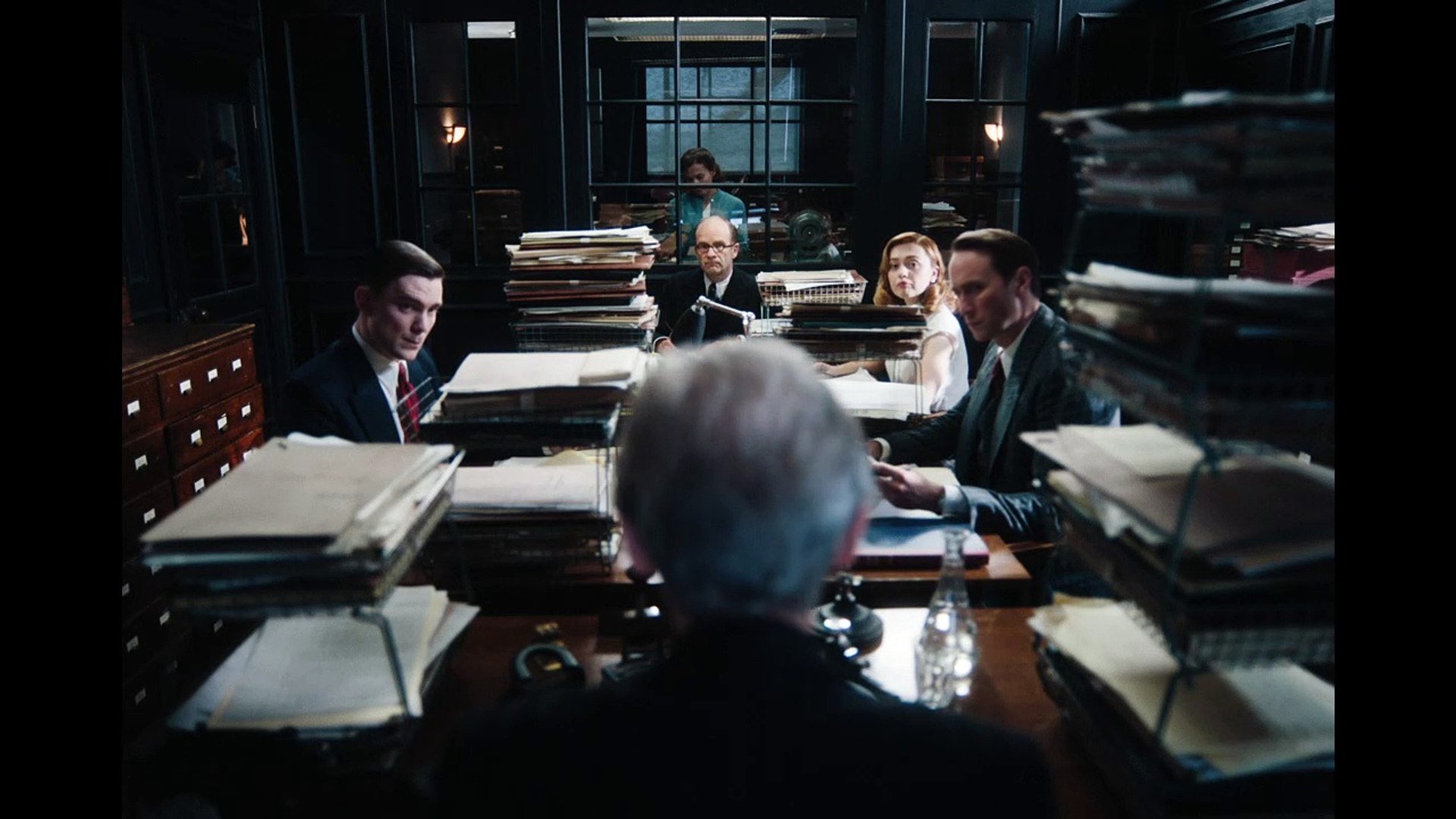Living review
London Film Festival 2022
This deeply affecting, quietly poignant picture begins with archive footage of 1950s London, framing in grainy 3:4 aspect ratio the elegant, bustling metropolis. Here the new backdrop for this life-affirming retelling of Akira Kurosawa’s Ikiru is established. The bowler-hatted Mr Williams (Bill Nighy) was charmed by the imposing, busy business hub as a child, but, after receiving a terminal diagnosis, he is struck by the devastating realisation that he has retreated into uninspired routine; “not happy, not unhappy.”
Nighy is remarkable in the lead role, restrained yet conveying so much emotion through each tiny flinch or twitch, his hesitant and wavering voice fraught with pain and defeat. Crucial to the films impact, though, is that this performance is partnered beautifully with Kazuo Ishiguro’s masterfully naturalistic script. Ishiguro brings to life someone at once both timid and injured but also towering and faceless; a business man whose ambition has been beaten down and whose ardor and energy has withered. At home he is disconnected from his children and at work he’s isolated from his colleagues, allowing paperwork to pile up in teetering towers of neglected projects. After receiving his diagnosis, he is struck by a feeling that he must seize what life he has left.
With little sense of how to seek fulfilment, he initially takes a trip to Brighton, where finds little success chasing after debauchery, gallivanting with Tom Burke’s louche and vivacious scriptwriter, Mr Sutherland. It is instead through a friendship with a young colleague who has recently resigned from the County Hall office, that Mr Williams finds rejuvenating spirit.
Miss Harris, played by the brilliant Aimee Lou Wood (who shined in Netlfix’s Sex Education), is perfectly cast. Wood brings a playful nativity and a quick-sparring and witty charisma. Her optimistic energy makes clear that Mr Williams is not experiencing a romantic infatuation - we want to spend time with her as much as he does - but that she plays a more profound role in guiding him back to a youthful nature that he has since lost.
Through their relationship, the “zombie-man” (as he is teasingly described by Harris) facade is slowly peeled away to reveal a shell of someone who has been disappointed with life. But Mr Williams is rejuvenated by his new friendship and decides to set his mind on completing a project - to build a play park on a bomb site in Chester Park - that has been repeatedly dismissed by every indifferent department.
Ishiguro’s script ingeniously manipulates the time-line of the final third of the story (mimicking Ikiru’s structure), as we piece together the construction of the playground and Mr Williams’ role in this. In working on the project he unlocks the childhood joy and spirit he had lost and cyclically reinstitutes it into the playground for the next generation of children.
This image, of someone rinsed of verve and joy unknowingly by the hamster wheel of the business world, is devastatingly resonant, but the film’s final note is one of hope. Living leaves a heartwarming glint shining through the tears, reminding us that it is never too late to turn things around and reclaim spirited, youthful joy.
In cinemas from the 4th of November . Cert. 12

